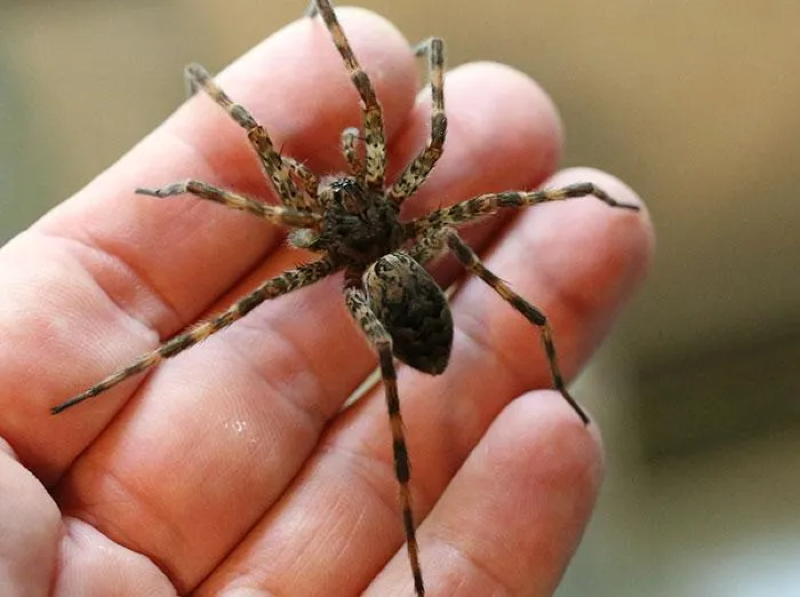The US deliberately gave hundreds of people STDs

From The Guardian: "From 1946-48, the US Public Health Service and the Pan American Sanitary Bureau worked with several Guatemalan government agencies on medical research paid for by the US government that involved deliberately exposing people to sexually transmitted diseases. The researchers apparently were trying to see if penicillin, then relatively new, could prevent infections in the 1,300 people exposed to syphilis, gonorrhea or chancroid. Those infected included soldiers, prostitutes, prisoners and mental patients with syphilis. The commission revealed on Monday that only about 700 of those infected received some sort of treatment. Eighty-three people died. The research came up with no useful medical information, according to some experts."
A rockstar researcher spun a web of lies and almost got away with it

From The Walrus: "Laskowski revealed that her ambition had drawn her into the web of prolific spider researcher Jonathan Pruitt, a behavioural ecologist at McMaster University in Hamilton, Ontario. Pruitt was a superstar in his field and, in 2018, was named a Canada 150 Research Chair, becoming one of the younger recipients of the prestigious federal one-time grant with funding of $350,000 per year for seven years. He amassed a huge number of publications, many with surprising and influential results. He turned out to be an equally prolific fraud. When Pruitt’s other colleagues and co-authors became aware of outright falsifications in his body of work, they pushed for their own papers co-authored with him to be retracted one by one. But making an honest man of Pruitt would be an impossible task."
A runaway whale fled Russian military training says a marine scientist

From the BBC: "The mystery as to why a beluga whale appeared off the coast of Norway wearing a harness may finally have been solved. The tame white whale, which locals named Hvaldimir, made headlines five years ago amidst widespread speculation that it was a Russian spy. Now an expert in the species says she believes the whale did indeed belong to the military and escaped from a naval base in the Arctic Circle. But Dr Olga Shpak, who worked in Russia researching marine mammals, does not believe it was a spy. She believes the beluga was being trained to guard the base and fled. Russia has always refused to confirm or deny that the beluga whale was trained by its military.”
Hi everyone! Mathew Ingram here. I am able to continue writing this newsletter in part because of your financial help and support, which you can do either through my Patreon or by upgrading your subscription to a monthly contribution. I enjoy gathering all of these links and sharing them with you, but it does take time, and your support makes it possible for me to do that. And I appreciate it, believe me!
The Berlin Wall never really fell

From Thinking About: "Thirty five years ago today, the Berlin Wall did not fall. I realize that I am running against the torrent of anniversary remembrances here. And no doubt you are thinking: he means this metaphorically; he means that some mental barrier remains between East and West, or perhaps between eastern and western Germany. No, I mean that, quite literally, the Berlin Wall did not fall. It did not fall thirty-five years ago today. It never fell. The "fall of the Berlin Wall" is a literary device, not a historical event. And that we have chosen a false image to stand for a moment of liberation reveals a problem. No wall actually fell. People eventually clambered on it, and chipped off pieces of it."
What it’s like to experience polar night in the world’s northernmost town

From The Smithsonian: "At 78 degrees north latitude, which is about 12 degrees farther north than the lower boundary of the Arctic Circle, Svalbard is no stranger to polar night. Throughout this period of darkness, the sun remains hidden from us. The sun’s position is so distant that no light reaches Svalbard at all, casting the sky into a perpetual state of pitch-black darkness. Here, only the moon, the stars and the occasional appearances of the northern lights offer up some natural light for us during this everlasting night. Polar night is the season that takes place each year when night lasts for more than 24 hours. When I first came to Svalbard, I had only intended to stay and work for a few months, but I was bitten by the Svalbard bug. Eight years after first moving to the island, I’m still here."
Drone footage looking down on a volcano eruption
Fascinating drone footage looking down into a volcanic eruption from above.
— Wonder of Science (@wonderofscience) November 5, 2024
📽: Bjorn Steinbekk pic.twitter.com/u6MGtONNax
Acknowledgements: I find a lot of these links myself, but I also get some from other newsletters that I rely on as "serendipity engines," such as The Morning News from Rosecrans Baldwin and Andrew Womack, Jodi Ettenberg's Curious About Everything, Dan Lewis's Now I Know, Robert Cottrell and Caroline Crampton's The Browser, Clive Thompson's Linkfest, Noah Brier and Colin Nagy's Why Is This Interesting, Maria Popova's The Marginalian, Sheehan Quirke AKA The Cultural Tutor, the Smithsonian magazine, and JSTOR Daily. If you come across something interesting that you think should be included here, please feel free to email me at mathew @ mathewingram dot com



